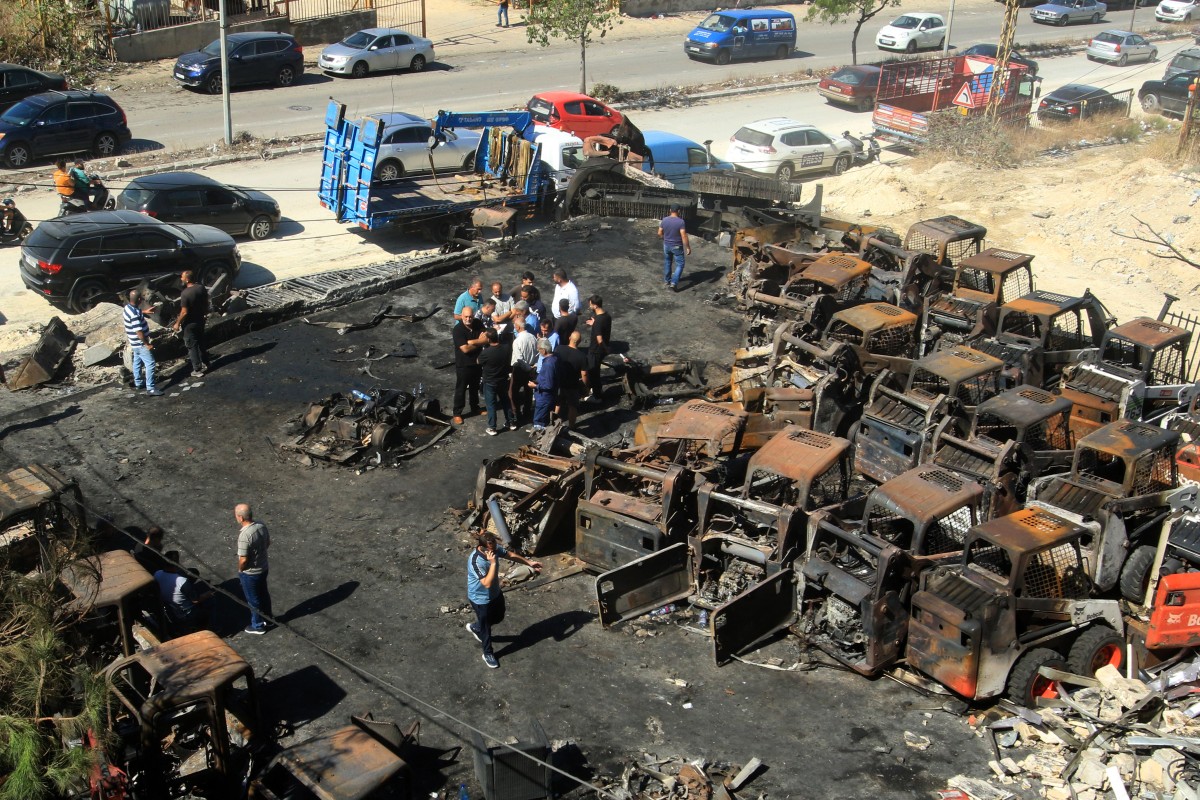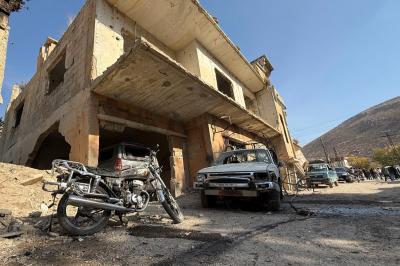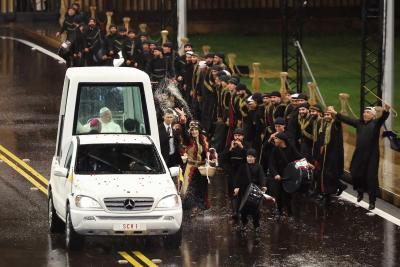With the ceasefire in Gaza now in effect, a pressing question looms over Lebanon: what lies ahead for the country as multiple scenarios circulate, most of them warning of the possibility that Israel could turn its focus northward and launch a sweeping war against “Hezbollah.”
For now, there is little sign that Israel intends to build on the Gaza ceasefire to pursue a similar arrangement with Lebanon. The opposite seems true. Immediately after the agreement was reached in Gaza, Israel carried out heavy airstrikes near the home of Speaker of Parliament Nabih Berri in the southern town of Msayleh. The strikes targeted depots filled with hundreds of bulldozers, excavators, and construction vehicles—equipment that could one day be used to rebuild southern Lebanon, north and south of the Litani River, if and when reconstruction begins.
The raids were interpreted as a double message to Berri, who had recently stressed the priority of reconstruction and warned that the 2026 state budget “will not pass Parliament unless it includes a clear clause on reconstruction.” He also cautioned against Israel “backtracking on the Gaza agreement as it did on the November 27, 2024 deal with Lebanon,” insisting that after Gaza, “the focus must shift to Lebanon, to implement what was agreed upon, and for the international community—especially the countries that sponsored the ceasefire—to assume their responsibility in obliging Israel to honor its commitments: withdrawal from occupied territory, halting aggression, and releasing prisoners.”
With the guns in Gaza silent for now, attention turns to Lebanon. Some see the ceasefire as a chance for de-escalation; others warn that Israel may seek to intensify pressure on “Hezbollah” without launching a full-scale war in the near term. The picture is complex, fraught with challenges, and several scenarios are on the table:
- Continued Israeli breaches of the truce: daily violations targeting Hezbollah’s infrastructure, operatives, and field commanders, while refusing to withdraw from the occupied southern hills. Israeli media suggests this enjoys consensus within the military establishment.
- Mounting international pressure, particularly from Washington, is pushing Lebanon to implement UN Resolution 1701 and disarm Hezbollah, all while avoiding an all-out war.
- Leveraging the regional negotiating climate: using ongoing mediation efforts over hostages and disputed border points to press for Hezbollah’s disarmament—an objective already at the center of international and regional diplomacy.
Several decisive factors will shape which of these scenarios plays out:
- Israel’s opaque intentions: Tel Aviv flatly rejects Lebanon’s “arms-for-withdrawal” formula and is focusing instead on exhausting Hezbollah’s capabilities. The recent strikes in Msayleh, which destroyed more than 300 civilian vehicles, were described by the Lebanese president as an attempt to “compensate for Gaza in Lebanon.”
- Hezbollah’s position: the group insists that halting Israeli aggression, releasing prisoners, and ending the occupation of remaining Lebanese territory must come before any discussion of its arms. It points to the government’s ministerial statement and the president’s inaugural address in January as frameworks for addressing the weapons issue under a “national defense strategy.”
- Washington’s uncompromising stance: the U.S. rejects half-measures on Hezbollah’s arsenal and appears determined to increase pressure for the strict application of Resolution 1701—potentially a decisive factor in shaping the outcome.
Looking ahead, all indicators suggest Lebanon is entering a phase of open-ended attrition. The situation will likely oscillate between bursts of escalation and temporary lulls, absent any comprehensive solution. Israel is betting on time to gradually weaken “Hezbollah”, while “Hezbollah”, for its part, is betting that time will allow it to rebuild and consolidate its strength.
An all-out war, however, appears unlikely in the immediate future. Just as Washington stepped in to halt the war in Gaza, it is equally determined to prevent the Lebanese front from spiraling out of control.
Still, Lebanon’s internal impasse will persist. The government lacks the capacity to disarm “Hezbollah” without jeopardizing internal stability, while it has yet to secure the international backing needed to launch reconstruction or revive the economy—largely because it has failed to commit to a clear course of placing all arms under state authority.
In this climate, Lebanon’s post-Gaza future remains suspended between international pressure and domestic deadlock. While the option of total war seems off the table for now, the cycle of limited escalation and grinding attrition threatens to perpetuate Lebanon’s crisis on every front.
Please post your comments on:
[email protected]
 Politics
Politics














